By the time a child reaches secondary school, they should have a solid foundation of basic life skills and responsibilities.

It’s not just following rules or completing chores that matter; they should be learning about building confidence, independence, and accountability. Learning responsibility early helps children deal with school, friendships, and everyday life with more ease. While every child develops at their own pace, there are certain responsibilities they should start practicing before secondary school. These 13 key skills in particular will set them up for success.
1. Taking care of their own belongings
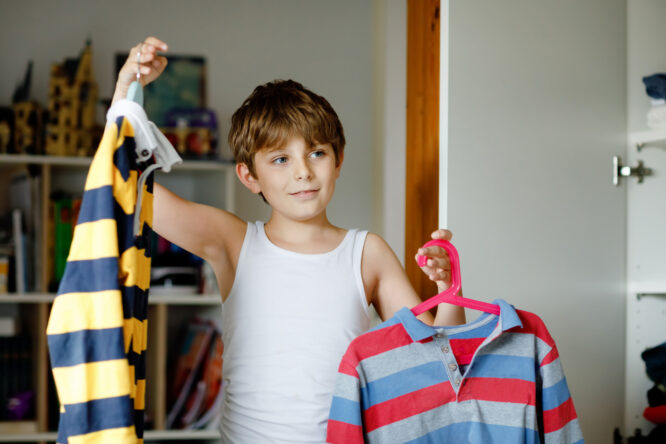
By this stage, kids should understand that their things don’t magically take care of themselves. They should be able to pack and unpack their school bag, keep track of their homework, and put their clothes, shoes, and toys in the right place.
It’s not just about tidiness; it’s about learning that looking after their belongings is their responsibility, not someone else’s. If they lose something or forget their PE kit, it’s a learning experience, not just an inconvenience.
2. Waking up and getting ready on their own
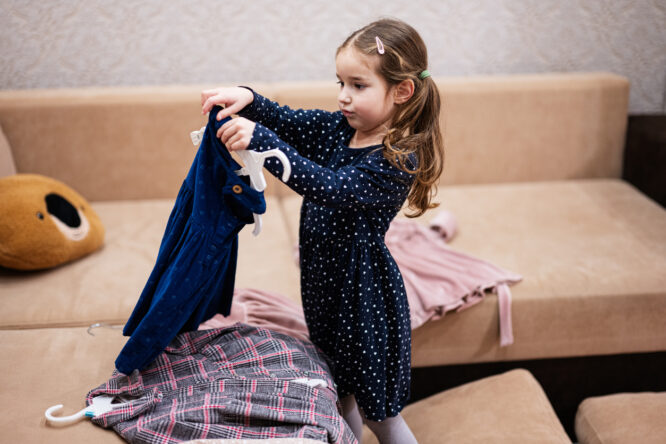
While parents might still set the alarm, children should be responsible for getting out of bed, dressing themselves, and making sure they’re ready for the day. Secondary school will require more independence, and this is a good place to start. Being able to follow a morning routine without constant reminders teaches time management and self-discipline—both essential skills for later in life.
3. Understanding the value of money
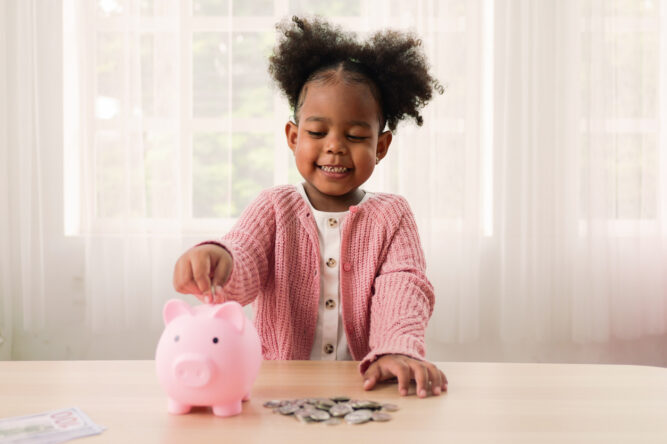
By the time they hit secondary school, children should have a basic understanding of money—how to save, spend wisely, and recognise that things cost more than just numbers on a price tag. Whether it’s managing pocket money, saving up for something they want, or understanding why they can’t always have everything they ask for, this skill lays the groundwork for future financial responsibility.
4. Helping with basic household tasks
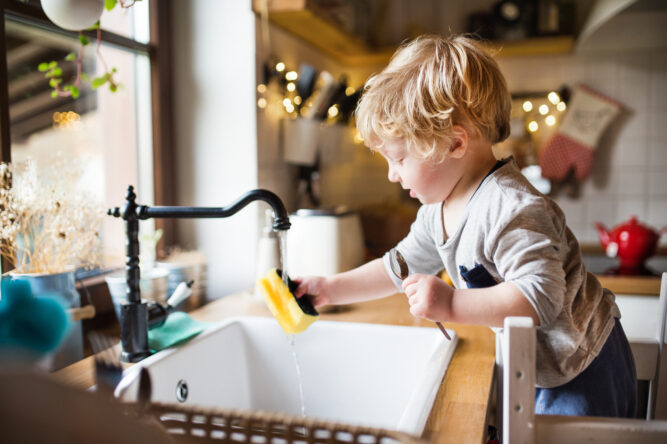
Every child should contribute to the running of the house in age-appropriate ways. This could mean setting the table, loading the dishwasher, putting away laundry, or sweeping the floor. They’re not just helping Mum and/or Dad; they’re learning that everyone in a household has a role to play. Learning this young makes it second nature rather than a dreaded chore.
5. Knowing how to prepare a simple meal
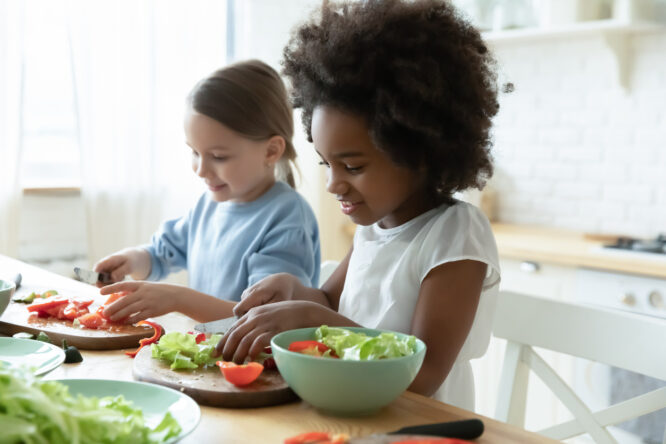
No one is expecting gourmet meals, but by secondary school, kids should be able to make a sandwich, heat up soup, or scramble eggs. They should also understand basic kitchen safety, like how to use a toaster properly or why you shouldn’t put metal in a microwave. These small skills set the stage for learning how to cook later in life and prevent them from relying on other people for every meal.
6. Taking responsibility for their homework
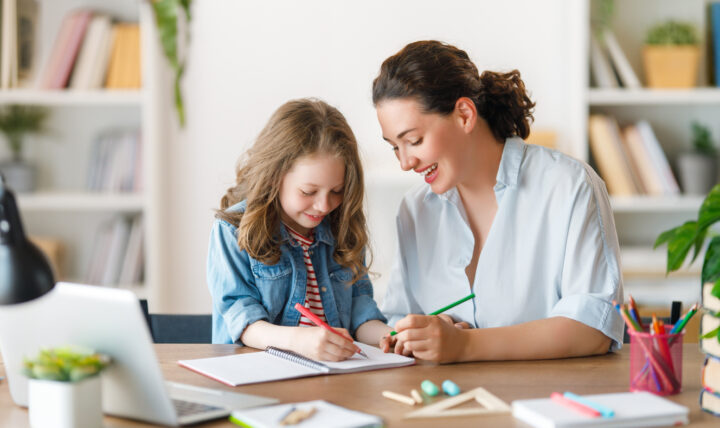
Kids should understand that completing their homework is their job, not their parents’. By this stage, they should be able to manage their assignments, pack what they need for school, and ask for help if they’re struggling. Parents can offer support, but the goal is for children to develop independence so they’re ready for the increased workload of secondary school.
7. Practising good hygiene without reminders

By the time they leave primary school, children should know how to brush their teeth properly, shower regularly, and take care of personal hygiene without needing to be told. As they get older, hygiene becomes even more important—not just for health reasons, but also for social confidence. The earlier they get into the habit of looking after themselves, the easier it will be.
8. Understanding how to be safe when out and about
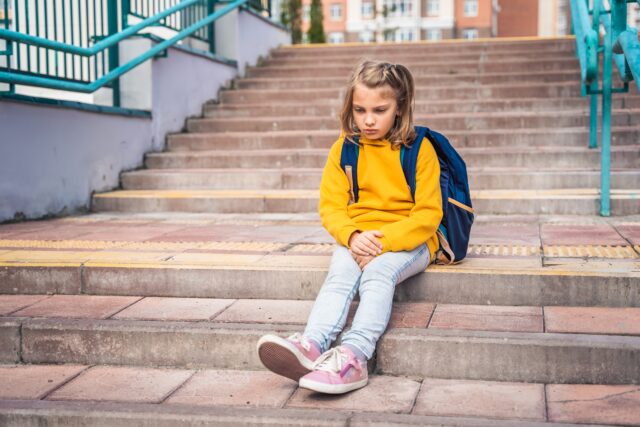
Before heading to secondary school, children should know how to cross the road safely, what to do if they get lost, and how to recognise unsafe situations. If they’ll be walking or taking public transport, they should be aware of basic safety rules. It’s about building confidence in handling everyday situations, while also understanding the importance of caution and awareness.
9. Managing their own emotions

Secondary school brings new challenges, including social pressures and academic stress. Kids who can recognise their emotions, express themselves appropriately, and handle disappointment will have a much easier time adjusting. That doesn’t mean they won’t have bad days, but they should start developing the ability to talk through their feelings, manage frustration, and understand that emotions aren’t something to bottle up or ignore.
10. Showing kindness and respect to other people.
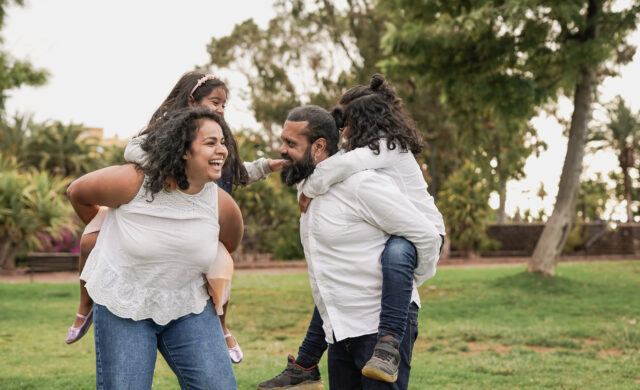
Responsibility isn’t just about personal tasks; it’s also about how kids interact with the world. Learning to be polite, show empathy, and treat everyone with kindness is just as important as any practical skill. Whether it’s saying thank you, being considerate of classmates, or understanding how their words affect other people, these lessons go a long way in shaping who they become.
11. Owning up to their mistakes
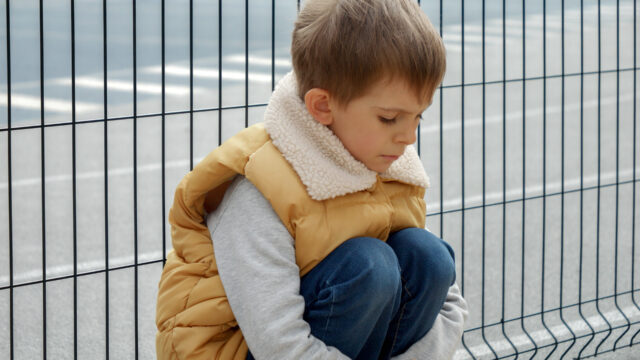
Everyone makes mistakes, but learning to take responsibility for them is key. Whether it’s forgetting an assignment, breaking something, or hurting someone’s feelings, they should be able to admit when they’re wrong. This helps them build accountability and resilience instead of developing the habit of making excuses or blaming other people.
12. Understanding the importance of time management

As children approach secondary school, managing their own time becomes more important. They should start recognising when to focus on schoolwork, when to take breaks, and how to balance fun with responsibilities. Simple habits like getting ready on time, keeping track of their schedule, or prioritising tasks help prevent last-minute panic and set them up for greater independence.
13. Knowing when to ask for help

Independence doesn’t mean doing everything alone. Kids need to understand that asking for help, whether with schoolwork, friendships, or emotions, is a sign of strength, not weakness. Whether it’s approaching a teacher when they don’t understand something or telling a trusted adult when something feels wrong, learning when and how to ask for help is one of the most valuable life skills a child can develop.




